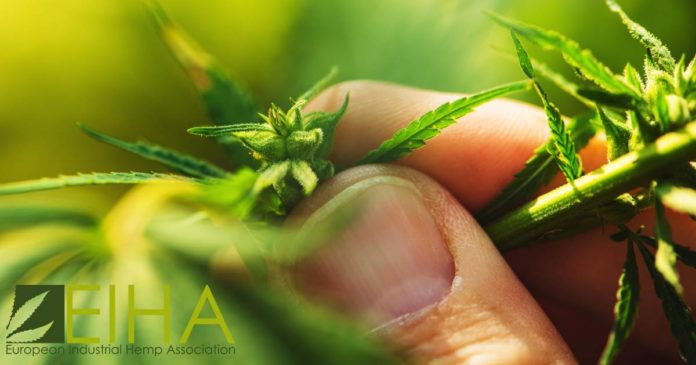The European Industrial Hemp Association has welcomed a successful European Parliament vote on an increase of the THC threshold for industrial hemp.
What legally distinguishes industrial hemp from marijuana is its level of the intoxicating cannabinoid tetrahydrocannabinol (THC). But thresholds vary from place to place. The higher the threshold, the more options growers have and this also reduces the incidence of crops being destroyed or potential prosecution of farmers for having “hot” crops.
THC limits were placed on industrial hemp in Europe in 1984 – 0.5%. In 1987, the threshold was reduced to 0.3% and then in 1999, the limit was lowered again to 0.2%; with the claim it was to reduce the cultivation of illicit marijuana in industrial hemp fields. It was reasoning that really didn’t make any sense.
This greatly reduced the range of cultivars available to farmers and has been a significant impediment to the EU’s hemp industry. But, 21 years later and finally some solid progress has been made in rectifying the situation.
Last week, the European Parliament voted in favour of an increase of THC levels for “in the field” hemp, raising it from 0.2% to 0.3%. Establishing market standards for hemp also received a supporting vote. While the vote is only a first step; it’s an important one.
“This vote represents a major achievement for the European hemp sector as, if confirmed by the Council, these two provisions will have a major impact on the development of European hemp businesses,” said the EIHA.
Upping the THC level would enable a wider range of cultivars to be established in the EU, while establishing marketing standards should see an improvement of quality and standardisation of hemp products – which is good for everyone.
“For decades, hemp has been considered as a minor crop, while, for centuries, it has been a key asset for our economies,” said EIHA President Daniel Kruse.
The EIHA represents the common interests of hemp farmers, with a mission of serving, protecting and representing the hemp sector in EU and international policy-making.
In August this year, the EIHA accused the European Commission of attempting to kill the EU’s hemp sector by attempting to designate extracts from industrial hemp, including the non-intoxicating cannabinoid cannabidiol, as drugs in EU legislation.


